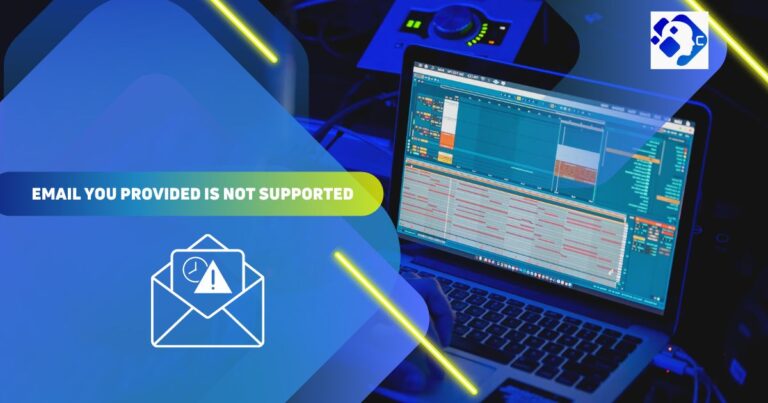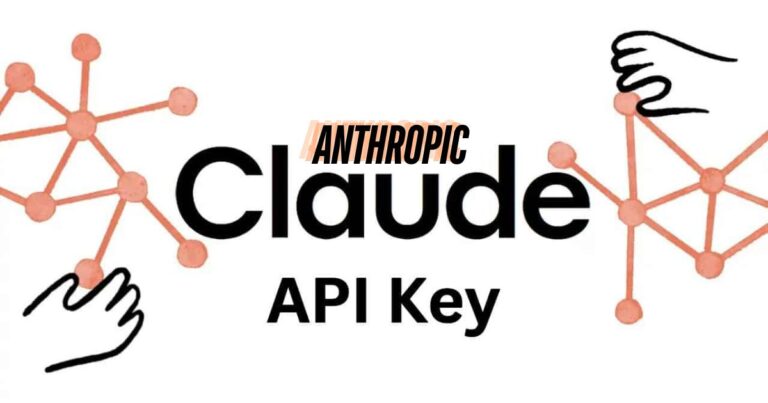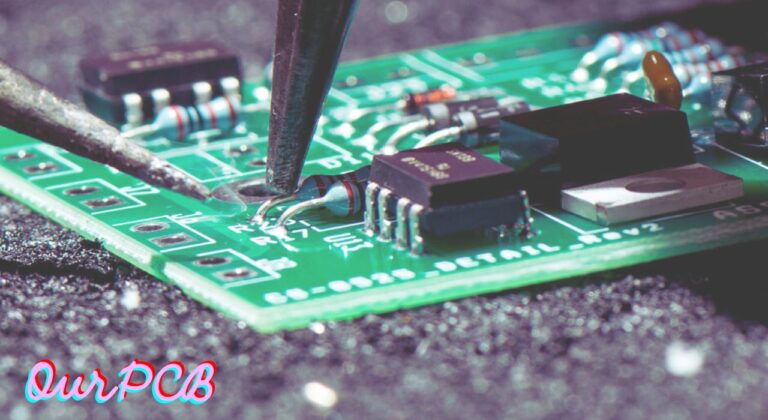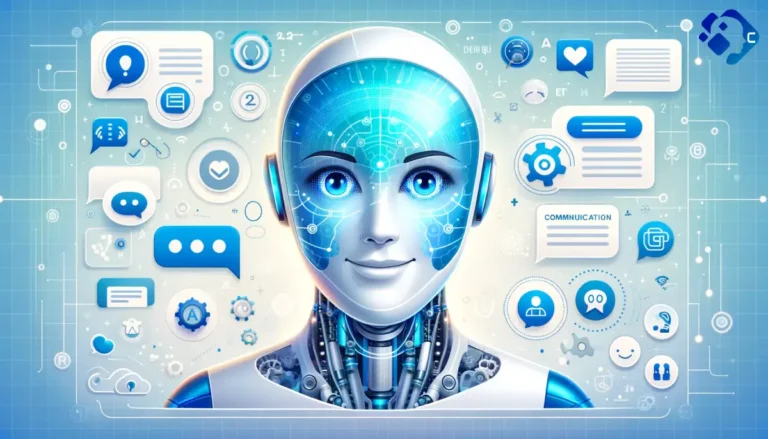Claude AI: Safe and Sensible Anthropic’s AI Assistant
Claude AI is an artificial intelligence chatbot designed by the startup company Anthropic, which aims to make the conversations of its users more natural. In many ways, it’s seen as a rival product to the widely known product from OpenAI, called ChatGPT. Below, we will do an overview of Claude AI and compare it with other AI assistants.
Claude AI – The AI That Revolutionizes Natural Conversation

Claude AI is designed by Anthropic specifically to be helpful, harmless, and honest. Its conversational abilities aim to be more nuanced, thoughtful, and contextually relevant than other chatbots.
As a constitutional AI, Claude is architected differently with a focus on safety during the model training process. The goal is to create an AI assistant that is trustworthy enough to have natural dialogs with.
Some key capabilities of Claude include:
- Carrying contextual conversations that are sensible and on-topic
- Providing relevant and factual responses to questions
- Admitting mistakes and saying when it does not know something
- Respecting instructions and corrections from users
Claude is still in a limited beta but shows promise to keep conversations helpful without going off the rails. Its safety-focused design is a key differentiator from AI like ChatGPT developed quickly without guardrails.
What Is Claude AI and Anthropic? A Closer Look at ChatGPT’s Rival
Anthropic is a startup founded in 2021 that focuses on developing safe artificial intelligence that is helpful, harmless, and honest through self-supervision techniques.
It was co-founded by Dario Amodei, Daniela Amodei, Tom Brown, Chris Olah, Sam McCandlish, Jack Clarke, and Jared Kaplan. Several co-founders previously worked at OpenAI and Google Brain.
Anthropic’s first product is Claude AI (CLAUDE), named after Claude Shannon, who wrote seminal papers on information theory and chess-playing algorithms.
As a conversational AI trained with constitutional design principles intended to maximize safety and minimize potential harms, Claude aims to be a helpful chatbot that avoids issues faced by large language models like ChatGPT.
Who Owns Anthropic, and Who Funds it?
Anthropic is self-funded by its founders and has also raised capital from investors like Dario Amodei.
In 2022, Anthropic raised over $700M in funding led by founders Dario Amodei and Daniela Amodei and included top VC firms like Coatue and Tiger Global.
This makes Anthropic one of the highest-funded AI safety startups to date. They now have over $1 billion to continue developing Claude responsibly using a technique focused on AI alignment.
In short Claude AI comes from startup Anthropic, which wants to usher in the next generation of conversational AI with strong safety principles to avoid harm. Backed by ample funding and AI talent, Claude aims to set a new standard for helpful chatbots that users can trust.
Overview of Claude AI
To better understand Claude and what sets it apart, let’s overview how Anthropic built and launched this AI chatbot.
What is Claude AI?
Claude is an artificial intelligence assistant created by Anthropic to have more helpful, harmless, and honest conversations using natural language.
It features a robust conversational model designed particularly for safety during training to avoid potential harm. Claude aims for responses to be relevant, nuanced, and reliable compared to other chatbots.
As an AI with constitutional principles, its focus is on trustworthiness so users feel comfortable chatting about sensitive topics freely while still receiving thoughtful guidance.
Claude’s Underlying Technology
Claude utilizes specialized natural language processing (NLP) and machine learning techniques for more meaningful dialogs.
Some of the key techniques underlying Claude include:
- Self-supervision – Claude learns patterns from public dialog data online without explicit labeling or classification. This technique helps it better understand conversations.
- Relevance filtering – Irrelevant sequences are filtered out to keep Claude’s responses topically appropriate. This avoids non-sensical text generation.
- Constitutional AI – Claude is designed with alignment techniques that embed safety during the model training process. This provides safety constraints on its behavior.
Combined, these methods tune Claude’s language model to be helpful for human users while avoiding the potential downsides of uncontrolled text generation.
Designing an Ethical AI
As AI like ChatGPT has shown, large language models can easily be misused with harmful real-world consequences if not developed carefully.
Claude’s creators Anthropic focused on ethical AI principles so users can trust the information and guidance Claude provides:
- Helpful – Gives beneficial knowledge to users, admits mistakes
- Harmless – Avoids directly harmful, illegal, or unethical content in responses
- Honest – Does not make up facts or pretend expertise it does not have
Extensive model training and testing were done to instill Claude with reliability and safety at its core.
Testing Claude’s Capabilities
Before its launch, Claude was rigorously tested in Anthropic’s private alpha to assess its conversational abilities and safety.
Some key tests included:
- Accuracy of factual responses on a diverse range of topics
- Relevance, context interpretation, and sensibility of dialog flows
- Ability to gather new contextual information during long conversations spanning multiple hours
- Quantitative measurement of potential harms or toxicity in the generated text
- Adherence to constitutional design principles for safety even with stress testing
The level of insight this testing enabled into Claude’s strengths and areas for improvement was vital for instilling user trust in this AI chatbot before launch.
Public Beta Launch
After extensive internal testing, in January 2023 Anthropic opened access to a Claude public beta for people to start conversing with this AI assistant.
This initial launch was designed to be gradual and controlled across core English-speaking countries like the US, UK, Canada, and Australia.
Some key reasons for a limited public beta include:
- Monitor model performance carefully with a broader user base
- Gather additional feedback to continue improving Claude
- Scale up technical infrastructure responsibly
- Build waitlist demand and interest ahead of an official full launch
Responsible Open Access
As an AI startup focused on safety, Anthropic wants to encourage responsible research and development of language models that avoid harming people.
To work towards this goal, beyond individual access to Claude, Anthropic plans to open up parts of its work for the research community to build on responsibly through initiatives like the Open Constitutional AI Research Institute.
Core components that protect safety in Claude’s architecture and training methodology may be shared to set best practices for the wider industry. Models trained with strong alignment techniques could also be released for others to replicate.
This open access aligns with Anthropic’s principles around steering AI progress in an ethical direction that prevents repeating mistakes that enabled questionable systems like Tay or Galactica to be released.
The Future of Claude
As Claude receives more real-world testing during its beta, Anthropic engineers continue to refine and upgrade this AI assistant.
Some key areas of focus for Claude’s roadmap include:
- Expand language and multilingual support
- Increase model parameters and training data over time
- Enable connectivity through Claude API and integrations
- Improve contextual dialog capabilities
- Strengthen constitutional AI approach to maximize safety
The company not only aims for Claude to be the most helpful chatbot but also to shape responsible development of generative AI moving forward.
Features and Applications of Claude AI

As an AI assistant designed for natural conversation, Claude has some standout capabilities. Let’s explore this chatbot’s current and future features and applications.
Applications of Claude AI
Some of the key current and future applications of Claude include:
- General information – Answering factual questions on a wide range of topics
- Language translation – Translating text between languages
- Content generation – Writing initial drafts of content like articles, emails, code and more based on prompts
- Creative writing – Providing ideas and suggestions for stories, lyrics, scripts, and other creative writing
- Education – Helping students understand concepts, improve study skills, and expand knowledge
- Accessibility – Assisting people with disabilities to access information and complete tasks through natural language
As Claude develops, more specialty professional use cases tailored to verticals like finance, law, and healthcare may emerge as well from its strong language capabilities.
Features of Claude AI
Some standout features that enable Claude to handle these applications include:
- Constitutional AI – Allows Claude to avoid toxic, illegal, or unethical content in responses
- Contextual awareness – Keeps track of conversation history and details to give relevant suggestions
- Instruction tuning – Can be corrected by users to improve their knowledge
- Multitasking – Trained on diverse datasets allowing indications of confidence and honesty in responses
- Reliability – Designed to avoid false claims through safety principles embedded in its architecture
Combined, these attributes provide Claude with advanced natural language understanding for more helpful, nuanced dialog compared to other generative AI systems.
Claude (language model)
The key technology powering Claude is its underlying language model – an algorithm trained to understand, generate, and manipulate language appropriately.
With self-supervision on substantial text data, Claude’s language model gains strong capabilities for conversing, classifying text, translating languages, summarizing writings, and answering questions.
Advanced natural language processing (NLP) techniques allow Claude’s language model to far exceed simple keyword matching or templates when interpreting and responding to prompts. This empowers very human-like exchanges.
Comparisons with Chat GPT
As a new conversational AI tool, it’s inevitable for Claude to be compared to ChatGPT, OpenAI’s popular chatbot. There are some key similarities and differences worth exploring.
What is Claude AI and How Does it Compare to ChatGPT?
While both are artificial intelligence assistants designed to handle open-ended human dialog through natural language, their underlying approaches differ significantly:
- ChatGPT – Created quickly by OpenAI using a huge language model trained on web data
- Claude – Developed slowly with a focus on safety by Anthropic using specialized techniques
In practice, ChatGPT has proven more capable but also prone to serious issues around misinformation, toxicity, and bias that Anthropic intentionally avoids with Claude through rigorous constitutional design.
Claude AI vs. ChatGPT
Some key high-level differences between these two AI chatbots include:
| Algorithm | Claude | ChatGPT |
|---|---|---|
| Language Model Size | Smaller (~15 billion parameters) | Larger (~175 billion parameters) |
| Training Timeline | Slower (2+ years) | Faster (months in silence) |
| Safety Approach | Primary focus | Secondary consideration |
| Factual Accuracy | Higher confidence | Higher risk of falsehoods |
| Toxicity Risk | Lower | Higher |
So while ChatGPT has some clear raw text generation advantages, Claude trades off scale for rigor around safety and reliability – arguably harder but vital to progress AI responsibly.
Language Model
Specifically, Claude utilizes a smaller but specialized language model architected to allow safer, more constrained dialogs focused on being helpful, harmless, and honest.
ChatGPT leverages massive datasets and parameters for impressive but unfiltered text generation abilities that get it in trouble frequently when responses violate ethics, facts, common sense, and its own stated principles.
Ultimately both Claude and ChatGPT offer compelling conversational abilities, but targeted for different use cases based on their differing priorities around capabilities vs safety.
Data Retention and Usage
Anthropic’s Claude AI has been designed not to store or learn from any sensitive user data, avoiding privacy concerns.
In contrast, ChatGPT retains inputs and links them to user accounts, concerning researchers over what OpenAI ultimately plans to do with that data and users’ lack of control.
So Claude aligns better with responsible data practices as its training methodology using constitutional AI principles does not require retaining personal conversations.
Response Moderation
Claude AI also employs specialized content moderators to filter its responses manually at scale with strict guardrails around safety.
ChatGPT lacks similar response vetting before users see them, leading to well-documented incidents of toxic outputs that had to be edited after public complaints.
Manual moderation combined with Claude’s constitutional model safeguards provide more assurance against harmful content slipping through.
Context Window Size
In terms of tracking conversational context, Claude uses a relatively smaller rolling window of approximately 5 dialog turns.
ChatGPT increased context to about 2,000 tokens or 10 dialog turns, but has shown longer discourse capabilities in some cases, likely due to its far larger model scale.
So Claude trades off lengthier sequential inferences for tighter safety, while ChatGPT gambles successfully on long-range reasoning despite proportionally higher risks as dialogs continue.
Revenue
As a startup focused on developing safe and helpful AI, Anthropic intends to monetize Claude responsibly to sustain its growth.
Some potential future revenue models for Claude include:
- Paid subscription plans – For individuals, teams, and enterprise access
- Usage-based pricing – Per-request billing above monthly free limits
- Add-on services – Premium features like higher limits or priority responses
- Data licensing – Claude’s training methodology and safety techniques
- Cloud APIs – Integrations with Claude’s language capabilities
In comparison, ChatGPT was launched initially with no business model by OpenAI. Speculation continues around their plans to monetize through some combination of paid tiers, enterprise services, and exclusive API access.
This illustrates Anthropic’s more transparent and sustainable roadmap for commercial viability based on direct value created for Claude users rather than alternate sources like exploiting data.
Functionality and Use
Now that we’ve compared Claude to alternatives like Chat GPT, let’s overview how to access Claude and start leveraging its AI capabilities:
Getting Started with Claude
To try out Claude’s conversational abilities today, you can join the public beta waitlist on Anthropic’s website and install their desktop application once granted access.
Some key steps include:
- Visit https://www.anthropic.com and enter your email
- Install the Claude desktop app when you receive beta access
- Create a user profile to get started with chatting
- Enter a prompt in natural language to begin conversing with Claude
Using Claude AI in Conversation
Once you have access to Claude, using this AI assistant will feel much like a natural conversation with a helpful peer. Let’s explore practical tips for getting the most out of your experience.
How do I use Claude AI?
When conversing with Claude, follow these best practices:
- Ask clear questions – Be specific with information requests for accurate answers.
- Start with context – Provide some background details before elaborate questions.
- Follow sensible logic – Build dialog flows naturally to avoid confusing Claude.
- Toggle instructions – Say “Claude, only provide factual information” to constrain responses.
- Offer feedback – Correct Claude if responses seem inappropriate or factually incorrect.
With open-ended dialogs, Claude may ask clarifying questions before responding or indicate if it cannot answer safely or truthfully.
Getting the Most from Your Conversations
Some examples of great ways to leverage Claude include:
- Learning assistant – “Explain quantum computing in simple terms”
- Writer’s aid – “Suggest three story plots around AI assistants helping high school students”
- Research companion – “What recent evidence supports climate change models?”
- Daily planner – “Can you outline a workspace morning routine to boost productivity?”
Remember, treat Claude as a helpful peer looking to offer a beneficial perspective, not an omniscient oracle. Have fun exploring!
Claude AI Pricing and Capabilities
As Claude expands access, Anthropic aims to offer affordable and transparent pricing so different groups can benefit from AI assistance.
Claude Pricing & Tokens Explained
Anthropic intends to launch multiple tiers for Claude’s access including:
- Free – Limited monthly queries for individuals
- Pro – More queries and features for $20/month
- Business – Priority requests and support for teams
- Enterprise – Custom models and integrations
Credits called Claude Tokens can also let power users purchase query packs if they exceed free limits during heavy usage periods.
Overall this approach balances opening Claude’s help to the masses while monetizing higher-volume use cases. Companies like DeepL and Grammarly employ similar freemium models successfully.
Claude AI and ChatGPT: Key Differences
Despite similarities as AI assistants, some core differentiators between Claude and ChatGPT include:
| Key Elements | Claude | ChatGPT |
|---|---|---|
| Access Model | Freemium tiers | Currently free |
| Safety Focus | Primary goal | Secondary concern |
| Factual Integrity | High confidence in responses | Higher inaccuracy risks |
| Data Privacy | No user data retention | Stores conversation history |
| Customization | Limited user instruction tuning | Minimal transparency or controls |
Leveraging Claude Day-to-Day
On a daily basis, Claude aims to prove useful in little ways like these:
- Providing quick fact-checks
- Suggesting ideas for gifts, recipes, or vacation spots
- Outlining task schedules to improve time management
- Comparing product alternatives with pros and cons
- Identifying credible sources to learn more about complex topics
The key is interacting conversationally, building on context, and steering Claude with feedback.
Think of Claude as an assistant at your side to consult, not one with pre-canned answers or a hidden agenda. Over time, Claude learns your preferences through natural dialog.
Claude’s Capabilities and Performance
While Claude is still new, early testing shows its conversational abilities compare well to other AI assistants while avoiding common downsides.
Claude AI vs. ChatGPT
Some key capability differentiators include:
- ChatGPT Has More Parameters Than Claude – 175B vs 15B currently enables broader content generation
- ChatGPT Is Better at Problem-Solving Than Claude – Greater access to world knowledge for reasoning without constraints
- ChatGPT Can Process Images, Claude Can’t – Multimodal abilities beyond just text and language
- Claude Can Process More Words Than ChatGPT – Up to 8,192 tokens per request vs 4,096 for tighter dialog focus
- Claude Does Not Retain User Data, ChatGPT Does – Aligns with privacy best practices around personal conversations
- Claude Says It Prioritizes Safety More Than ChatGPT – Constitutional principles embedded by design rather than in hindsight
So in essence, Claude trades some language breadth for specialization in safety – a narrower domain today but one that may prove vital as AI assistants permeate daily life.
Interpreting Claude’s Responses
When evaluating Claude’s responses, keep these key principles in mind:
- Results stay on-topic and avoid potential harm by design
- Claude will defer responses if no safe, truthful option exists
- Transparency around confidence levels for generated text
- Instruction tuning can help shape better answers
- Ongoing human review enables course-correction
While not magic, Claude tries to guide conversations constructively – a modest but meaningful step towards trustworthy AI.
Anthropic Funding and Ownership
As an emerging player in artificial intelligence, Anthropic has raised significant funding from top investors who believe in its mission.
Who has Developed Claude, and What can it do?
Anthropic was founded by Dario Amodei, Daniela Amodei, Tom Brown, Chris Olah, Sam McCandlish, Jack Clarke, and Jared Kaplan – leading AI researchers and safety experts.
Their aim is to develop AI assistants focused on being helpful, harmless, and honest. Claude represents the first product realization of this goal through natural language conversations.
Some of Claude’s key capabilities so far include:
- Answering information requests accurately
- Providing sensible guidance to open-ended questions
- Translating text between languages
- Summarizing long-form documents
- Suggesting creative ideas for stories and content
The key differentiator remains responsibly architecting Claude to avoid potential harm in its responses.
How has Claude been Trained?
As a constitutional AI designed with alignment in mind, Claude employs specialized training processes focused on safety:
- Self-supervision on dialog data pools to learn conversational patterns
- Relevance filtering removing non-sensical text
- Reinforcement learning rewarding helpful, harmless responses
This tedious approach constrains generative capabilities but enables reliability and control lacking in systems like ChatGPT with exponential risks at scale.
Conclusion and Key Takeaways
In closing, Claude pioneers a potential path for AI to responsibly evolve with human interests in mind rather than work against them through ignorance or indifference. Key learnings include:
- Constitutional AI matters – principles must manifest in models beyond just words
- Tradeoffs exist between capabilities and controls – evaluate priorities critically
- Progress requires asking tough questions on risks, ethics, economics
- Technologies shape future trajectories through direct and indirect impacts
While no silver bullet against complex challenges like bias and misuse, Claude’s early transparency and commitment to helpfulness, harmlessness, and honesty should illuminate the way forward amidst uncertainty.
FAQs
Claude prioritizes safety and responsible AI principles while ChatGPT focuses more on capabilities – they have different strengths.
Claude AI is an artificial intelligence assistant created by Anthropic to have helpful, harmless, and honest conversations.
Yes, Claude will offer a free tier with limited queries as well as paid subscriptions for more advanced access.
You can sign up on the Anthropic website to get on the waitlist for access to the Claude beta to start chatting.





